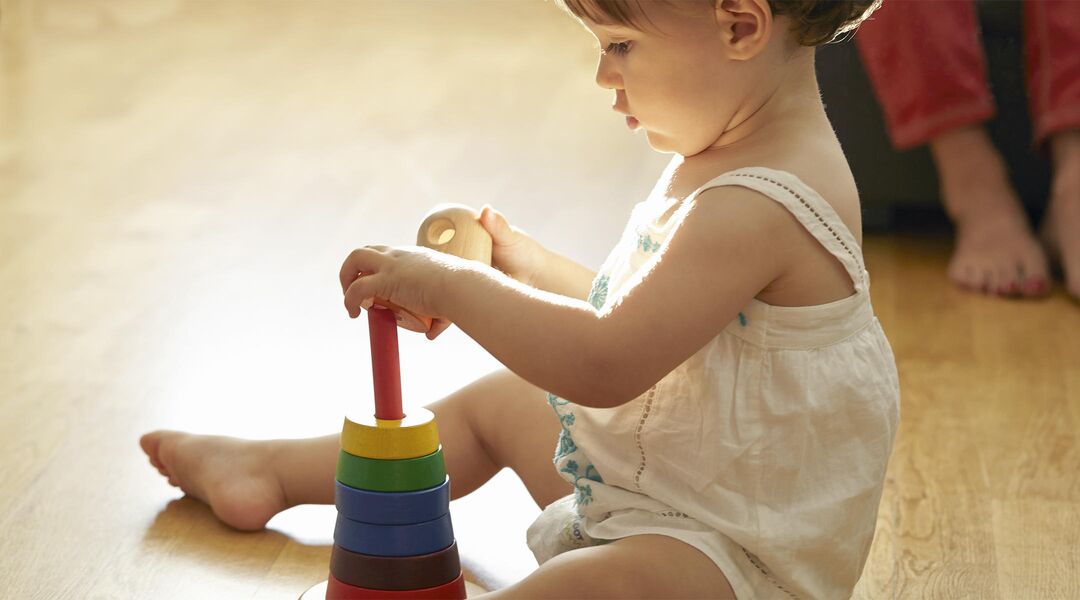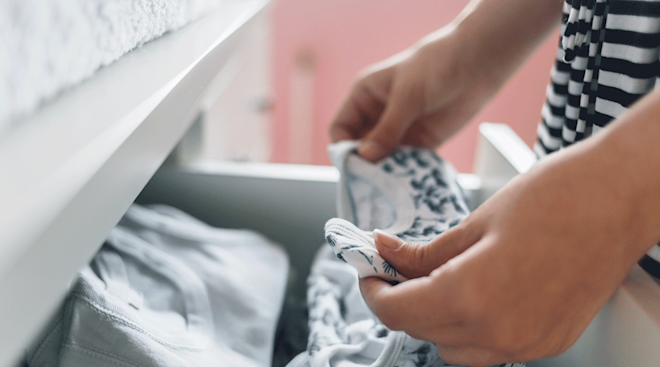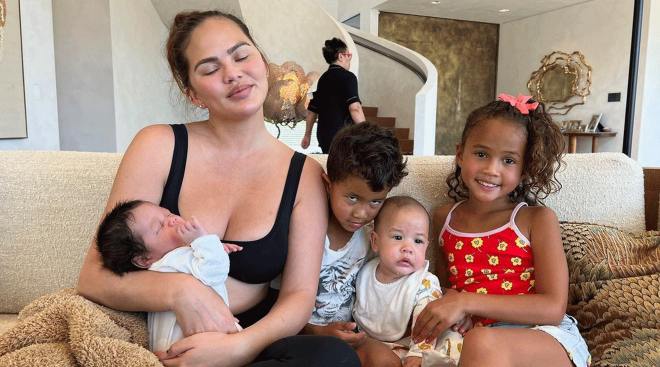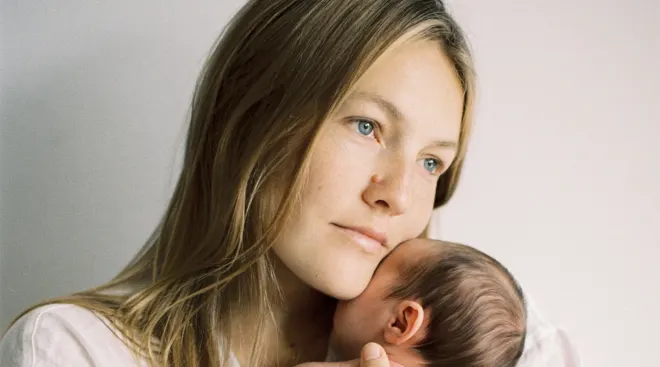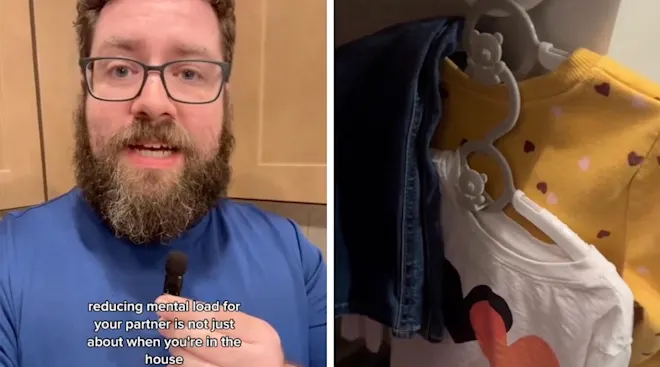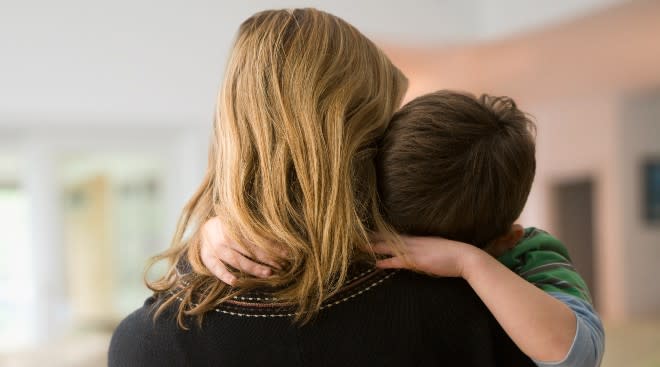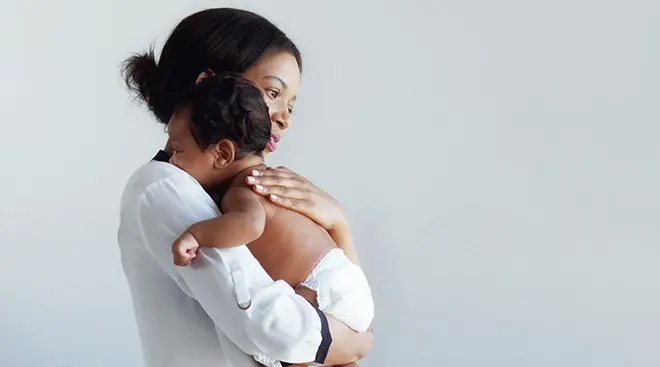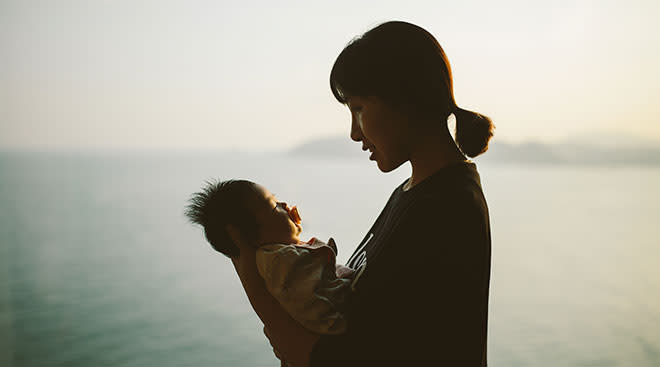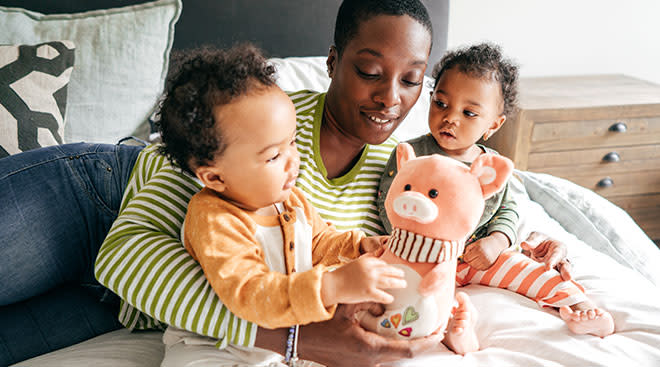RIE Parenting: Is It for You
Janet Lansbury was one overwhelmed new mom, but she insisted on making sure she met her daughter’s every need. That meant feeding baby, changing baby, bouncing baby, entertaining baby. “I was really exhausted, but I thought I was supposed to do all that,” she recalls.
But after a single class in RIE parenting, where she simply sat and observed baby for over an hour calmly taking in the world, Lansbury had an epiphany. “I realized she had her own things she wants to work out, at her own pace,” she says. “She didn’t need me in her face, and she seemed to prefer that I wasn’t. I saw my daughter as a person for the first time.”
That’s what led Lansbury to adopt the RIE parenting style—and to become one of the preeminent ambassadors and authors sharing this more low-key, connected parenting concept.
RIE (pronounced “rye”) parenting was the brainchild of Magda Gerber, an early childhood educator and former orphanage medical director who emigrated to Los Angeles from Hungary. She believed that parents not only care for and educate their children but learn from them as well. “What we teach is ourselves” is one of the movement’s mantras. This belief in a more relaxed and connected form of parenting led her to found the nonprofit Resources for Infant Educarers in 1978.
RIE, short for resources of infant educarers, has attracted the attention of many celebrities, including Tobey Maguire, Penélope Cruz and Felicity Huffman, which helped bring it into the limelight, including an infamous Vanity Fair article that poked fun at the adult-like way babies are treated as part of this parenting ideology.
The RIE philosophy is drastically different from several other popular ones. Helicopter parents, tiger moms and attachment parents are all more focused on the parents guiding or controlling their children. Free-range parenting, which lets your child lead the way toward his own passions and interests to foster independence, is probably the most similar parenting style. However, free-range parenting takes it one step further with even less involvement and observation than RIE.
The main tenet of RIE philosophy is baby arrives in the world with her own personality. “As soon as they’re born, RIE views children as whole people who are capable—not just adorable passive blobs,” says Lansbury, who also wrote the RIE-based book No Bad Kids: Toddler Discipline Without Shame. “They blossom, change, develop and mature, but the whole person is already there. They already have their own ideas, talents and passions. Instead of seeing our job as giving our children everything, showing them everything and teaching them everything, our job becomes building a relationship with this person and getting to know this person and facilitating this person.”
The RIE parenting system focuses on a simple, baby-centered philosophy that frees up both parent and kid to just be and interact when needed. Some basic tenets:
You don’t go crazy trying to entertain baby
RIE parenting is about letting your child find his own interests and pursue them—you’re there to observe, not be the source of all entertainment while he passively sits by. “There’s this fallacy that babies get bored,” Lansbury says. “But in reality, everything is too brand new and amazing to them. If they’re the ones deciding what they’re looking at [or playing with], they go for a long time.” RIE parenting means your child gets to take a more active role in everything, from helping with his diaper changes (even babies as young as infants can learn to “help” by lifting their legs, according to RIE proponents) to figuring out how he’d like to play.
You communicate a lot with baby
RIE parenting involves a lot of discussion—even giving a play-by-play—“sportscasting” everything you do. So as you go step by step through a diaper change, you’ll be telling baby what to expect. “The narration of events, behaviors, feelings, wants and wishes (past, present and future) is the most valuable aspect of the RIE method,” says Fran Walfish, PsyD, a child, couple and family psychotherapist in private practice in Beverly Hills, California. “I would hope and recommend that all parents incorporate a talking-through process into their daily life.”
You encourage baby to express emotions—even if that means crying it out
RIE parents don’t rush to stop a crying baby. Once they’re sure all baby’s needs are met, they simply support and hold them, and don’t go overboard trying to stop them from crying. “We have to try to stay in a conversation with a child who is crying,” Lansbury says. “What typically happens is panic, and now we’re overstimulating—rocking, bouncing, dancing with them—to get them to stop crying.” RIE parents believe that by trying so hard to calm a crying baby, you’re teaching baby it’s not okay to feel upset. “If we treat it as an emergency every time we feel something, it’s an emergency to change it,” Lansbury says. “That’s not a healthy setup for life.”
You forge a new path toward discipline
Forget about time-outs or punishments. RIE parenting is about setting boundaries for your child and sticking to them. “This is a very strict approach in discipline,” Lansbury says. “It’s not about being mean, but being very certain in your boundaries.” That means the child learns she needs to sit down to eat—and if she decides to get up, the food is cleared away and the child is told, “I see you’re starting to stand up, so I see you’re done with your food.” You’re the leader in this relationship, and you’re showing your child by example how to behave. “Children learn mostly through modeling—they learn good manners, generosity, empathy through us,” Lansbury says.
PROS
-
RIE parenting isn’t focused on rules. With other parenting styles, a lot of emphasis is placed on following a certain parenting path and certain ways of caring for baby. You may feel judged by others if you don’t follow these ideals to the letter. For example, bottle-feeding instead of breastfeeding or putting baby to sleep in a different room rather than co-sleeping. But the RIE method is less defined. “There are no hard-and-fast rules—it’s really a way of perceiving things,” Lansbury says. “There’s no, ‘you’re doing it right,’ ‘you’re not doing it right.’ ” Essentially, whatever works for you (and baby) is the best route.
-
You’re in for less parent guilt. Let’s face it: Many modern parenting styles are pretty focused on baby’s needs, not yours. That means a lot of moms and dads feel guilty when they take time away to meet their own needs—even if it’s to eat in peace or to use the bathroom. The RIE philosophy encourages moms to look at their parenting role as a relationship, and to make a commitment to take care of themselves too. “In the relationship between you and baby, you have boundaries right from the beginning,” Lansbury says. “Baby has a right to their feelings, and you have a right to take care of yourself.” So if your child starts wailing when you go shower, take your shower without rushing, but you acknowledge her feelings by saying, “I hear that you’re upset about it, but I need a shower.”
-
You encourage your child to be in touch with his emotions. RIE philosophy allows your child to own his feelings; not always trying to make things okay for him. “A lot of psychologists consider this preventative medicine for mental health because it is encouraging the flow of feelings that we all have and normalizing them,” Lansbury says.
-
You may save money on gear and toys. You’ll have a pretty short baby registry list if you go all into RIE parenting. RIE proponents only use bouncers, swings and other equipment that could overstimulate baby sparingly. And you won’t have to spring for toys with bells and whistles either—simpler toys are best. “I found RIE when my daughter was 18 months old, so I had already introduced a pacifier and way too many toys,” says Natalia Palda, a mom who blogs about RIE at the The Current Essential. “Once I started learning more about RIE and how all of different gadgets and toys weren’t necessary and, ultimately, hindered her innate ability to play, we consciously scaled back on the battery-operated, one-use type of toys and only kept the multiuse toys [like blocks and play dough].”
-
Your child will develop independence. You’ll be supporting your child but allowing her the space to develop her own skills—and that can lead to a more confident, self-directed child. “My daughter’s ability to develop independent play was huge for me,” Palda says. “Before I learned about RIE, I thought I should be engaging with my daughter all of the time. I’ve learned that allowing self-directed play in a safe environment will spark my daughter to play without being directed or placing my own judgment on what to do next.”
CONS
-
You may be in for a tough transition. If baby is used to you providing all the entertainment and stimulation, he may need some time to learn how to find his own ways to have fun—and that may mean putting up with a few extra tantrums or other forms of acting out while you’re implementing the RIE method.
-
Your role as a parent and caregiver may feel diminished. If you like taking a role as an active teacher or guide in baby’s life, RIE’s focus on simple observation and connection may not feel like enough for you. “It doesn’t jibe with people who want to be more active teachers for their children,” Lansbury says—for instance, “the moms who are looking to create the smartest baby.” RIE parenting is really more about being present with baby, and encouraging her emotions, interests and passions without pushing your own agenda on them.
-
There may be more crying. Rather than trying to minimize crying with rocking, dancing, singing or other techniques, RIE parents make sure baby’s needs are met, then are simply present and supportive while baby cries it out. “Crying is a natural, healthy reaction to a situation that doesn’t feel right,” Palda says. “Toddlers aren’t able to fully verbalize their feelings to us. Crying is their language.” So if you’re a parent who can’t take the tears, this may not be for you.
-
Talking to baby like a peer may feel awkward. RIE parenting involves a lot of communication—even with your newborn—but we’re not talking about goo-goo baby talk. It encourages communicating with baby like you would any other person you respect, and perhaps talking them through what you’re doing together, like, “now we’re putting your pajamas on.”
-
Critics say RIE is all talk, no action. “The biggest drawback in RIE is the lack of taking ‘action,’ ” Walfish says. “The parents say all the right things, but do nothing to enforce making their child comply with appropriate demands and expectations.”
For parents looking to connect with their kids and really get to know them, RIE parenting principles may help them achieve that. “I honestly feel like my daughter and I have a deeper relationship,” Palda says. “We have a beautiful unspoken understanding of each other. And I know that this foundation of understanding will only deepen as she grows.”
For More Info
Your Self-Confident Baby: How to Encourage Your Child’s Natural Abilities—From the Very Start by Magda Gerber: The book that started the RIE parenting movement, written by the founder
RIE.org: The main site for the organization, this offers links out to educators you can connect with for additional training.
RIE Parents of Older Children: A Facebook group for parents with a lively discussion.
JanetLansbury.com: Top current expert in RIE parenting, with a hefty set of blog posts, a podcast called Unruffled, and links to order books or arrange individual consultations.
RegardingBaby.org: This site, built by leading RIE expert Lisa Sunbury, offers a blog with hundreds of posts on the RIE parenting style.
Published July 2017
Please note: The Bump and the materials and information it contains are not intended to, and do not constitute, medical or other health advice or diagnosis and should not be used as such. You should always consult with a qualified physician or health professional about your specific circumstances.
Navigate forward to interact with the calendar and select a date. Press the question mark key to get the keyboard shortcuts for changing dates.
































